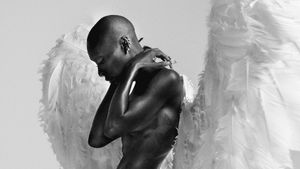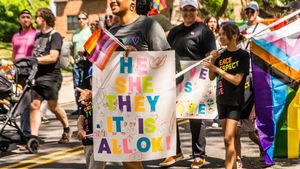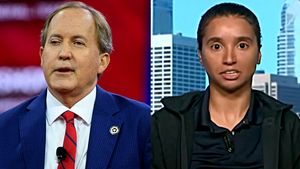Shirley Chisholm, Politician (1924-2005)
My interest in politics and community activism stemmed from having the honor of meeting Shirley Chisholm when I was a little girl.
Running on the slogan “Unbought and Unbossed” that later became the name of her memoir, Shirley Chisholm made history in 1968 when she became the first female and black elected to the U.S. House of Representatives, representing hers and my native Brooklyn neighborhood, Bedford Stuyvesant, a predominately black enclave that had long been under the control of white male Democrats.
It wasn’t, however, until her bid for the 1972 Democratic presidential nomination that catapulted her to national attention. Although it was clear to Chisholm she would not win the bid, Chisholm, nonetheless, wanted to encourage both women and blacks to take politics seriously.
"I am a candidate for the Presidency of the United States. I make that statement proudly, in the full knowledge that, as a black person and as a female person, I do not have a chance of actually gaining that office in this election year. I make that statement seriously, knowing that my candidacy itself can change the face and future of American politics — that it will be important to the needs and hopes of every one of you — even though, in the conventional sense, I will not win." — June 4, 1972.
Chisholm was quoted as saying that she experienced far more discrimination over the years as a woman than she did as an African American. And because of her no-nonsese demeanor she was often called a dyke, and her husband, Conrad, was rumored to be gay. Chisholm felt there had been a great deal of progress over the past 30 years for women in politics, but that "we still need more progress."
Born in Brooklyn, NY, Chisholm spent her formative years in Barbados. A graduate of Brooklyn College, Chisholm later went on to earn a master’s degree in elementary education from Columbia University.
Chisholm was a founder of the National Political Congress of Black Women. “Nobody calls on black women to find out what they’re thinking because we’re always part of somebody’s else's agenda,” Chisholm said. “I want to organize black women in this country so that they’ll become a force to be dealt with.
And Chisholm is remembered as a force to be dealt with.
An obituary in the New York Times quoted Chisholm saying, as she left Washington, that she did not want to go down in history as "'the nation's first black congresswoman' or, as she put it, 'the first black woman congressman.' I'd like them to say that 'Shirley Chisholm had guts,' she said. 'That's how I'd like to be remembered.'" At her death, the Reverend Jesse Jackson called her a "woman of great courage." Al Sharpton stated, "she broke the barrier down for black women in the highest circles of power in Washington and she did it with dignity and did it effectively and did it with no fear." As Robert E. Williams of the NAACP in Florida, where she retired, said, "She was our Moses that opened the Red Sea for us."
Follow SheWired on Twitter!
Follow SheWired on Facebook!
Be SheWired's Friend on MySpace!






























































































































